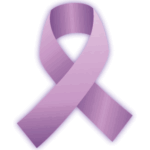 The “BMI” which stands for Body Mass Index is a public health tool that is used to assess population health, but isn’t a great tool for assessing an individual’s health. It’s possible that your current weight is where your body needs to be in order to maintain proper functioning and to support your wellbeing. Seeing your weight or BMI could be triggering given your history and how public health classifications use terminology to classify body size. The most important thing for your health is to focus on positive health behaviors: eating at least three balanced meals throughout the day, getting good sleep, and finding movement that is enjoyable. Behaviors such as these will help your body settle at a healthy weight and for you, that might be your current weight. It sounds like now would be a good time to have extra support from both a dietitian and a therapist to work as a team to develop a plan that helps you continue with recovery and feel your best.
The “BMI” which stands for Body Mass Index is a public health tool that is used to assess population health, but isn’t a great tool for assessing an individual’s health. It’s possible that your current weight is where your body needs to be in order to maintain proper functioning and to support your wellbeing. Seeing your weight or BMI could be triggering given your history and how public health classifications use terminology to classify body size. The most important thing for your health is to focus on positive health behaviors: eating at least three balanced meals throughout the day, getting good sleep, and finding movement that is enjoyable. Behaviors such as these will help your body settle at a healthy weight and for you, that might be your current weight. It sounds like now would be a good time to have extra support from both a dietitian and a therapist to work as a team to develop a plan that helps you continue with recovery and feel your best.
Our health guides are developed through a systematic, rigorous process to ensure accuracy, reliability, and trustworthiness. Written and reviewed by experienced healthcare clinicians from Boston Children's Hospital, a Harvard Medical School teaching hospital and consistently ranked as a top hospital by Newsweek and U.S. News & World Report, these guides combine clinical expertise, specialized knowledge, and evidence-based medicine. We also incorporate research and best practices from authoritative sources such as the CDC, NIH, PubMed, top medical journals, and UpToDate.com. Clinical specialists and subject matter experts review and edit each guide, reinforcing our commitment to high-quality, factual, scientifically accurate health information for young people.